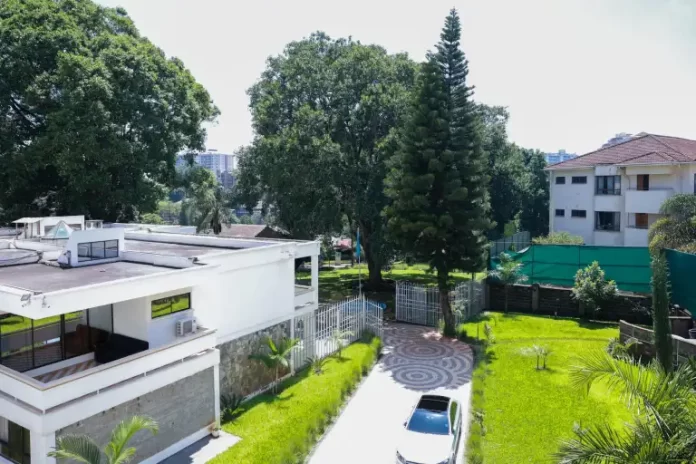NAIROBI, Kenya – The Somali Embassy in Kenya finds itself at the center of controversy, accused by opposition politicians of leveraging its diplomatic status to suppress dissent. This escalating conflict threatens to tarnish the embassy’s reputation and could strain diplomatic relations between Somalia and Kenya.
Recent allegations surfaced when MPs Hassan Abdi Nur and Kooshin Ahmed, both vocal critics of the current Somali government, claimed they were detained by Kenyan intelligence, an action they attribute to the influence of the Somali Embassy. The MPs, who were in Nairobi, assert that their parliamentary immunity was blatantly disregarded, pointing fingers directly at the embassy for orchestrating their temporary confinement.
Further fueling the controversy, Shabelle Media has obtained evidence, including CCTV footage, purportedly showing Kenyan security forces entering the residence of Ali Abdi Wardheere, known as Ali Yare Ali, a former Deputy Governor in Somalia’s Benadir Region. This incident, according to opposition figures, underscores a pattern of using Kenyan soil for political vendettas against Somali opposition members.
The opposition politicians residing in Kenya have expressed deep concern over these actions, arguing that such misuse of embassy power not only undermines their safety but also severely damages the embassy’s credibility and by extension, the image of the Somali government abroad. They argue that the embassy, instead of fostering unity and serving the diaspora, has become a tool for political suppression.
This situation has sparked a wave of criticism and debate on social platforms like X, where users discuss the implications of such diplomatic overreach. Some posts highlight the irony of an embassy meant to protect its citizens abroad being accused of orchestrating their harassment. Others speculate on the broader political motives behind these actions, suggesting a strategy to silence opposition voices ahead of significant political events in Somalia.
The Somali Embassy in Kenya has yet to issue a formal response to these allegations. However, the silence from official quarters has only amplified the calls for transparency and accountability. Critics argue that if these allegations hold, it represents a significant breach of diplomatic norms and could set a dangerous precedent for how embassies operate in host countries.
As this story unfolds, it raises questions about the limits of diplomatic immunity and the responsibilities of embassies towards their citizens, especially in politically charged environments. The international community watches closely, as the outcome could influence diplomatic practices and the treatment of political figures in exile or opposition. Meanwhile, the Somali community in Kenya and observers of East African politics await further developments, hoping for a resolution that upholds the principles of democracy and diplomatic decorum.





